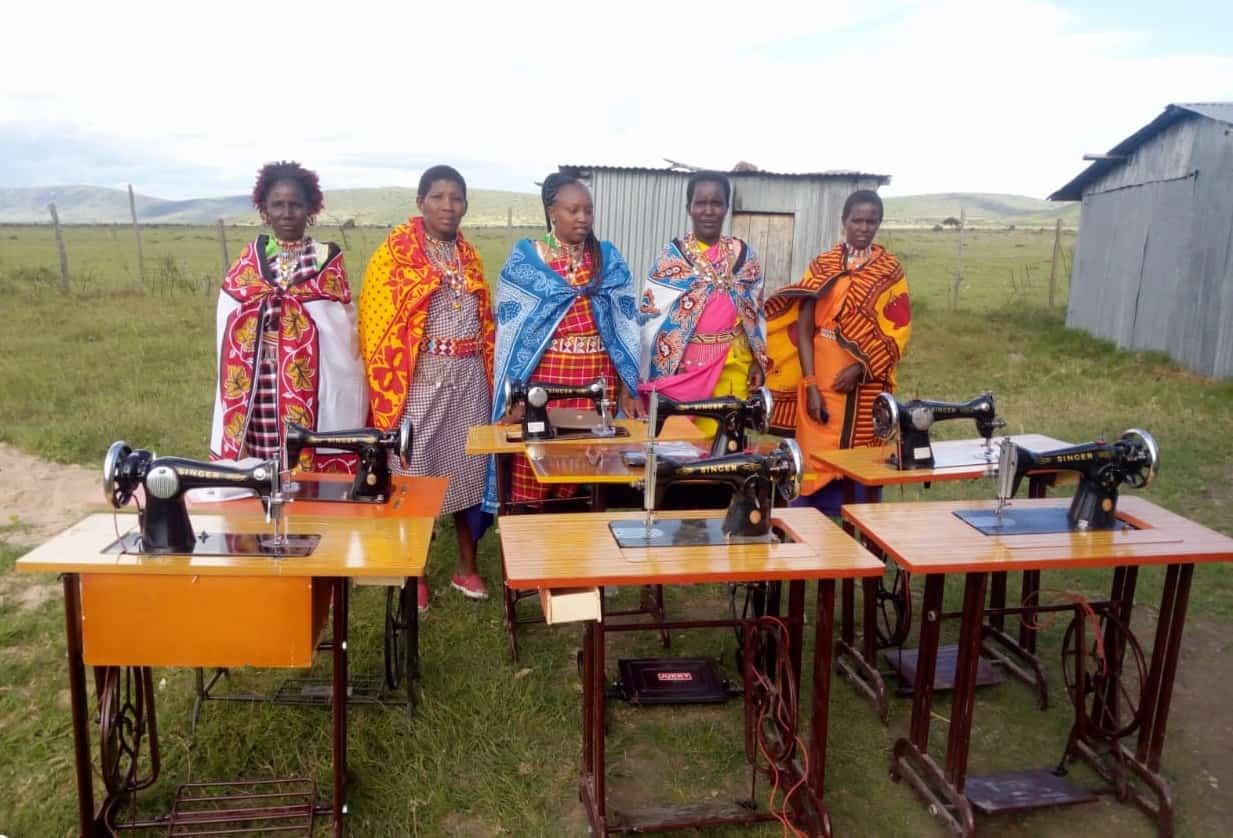The Community
| Cobmex Donates New Sewing Machines to Community in Kenya |
280 kilometers from Nairobi, Kenya’s capital, is Maasai Mara and 300 kilometers from Nairobi, is Samburu. Here, there are sister tribes and within them, a collective of women registered as a self-help group within their community called Namayiana Women’s Group in Samburu (25 members) and the Sonkoyo Nailepu Women’s Group in Maasai Mara (60 members).
Founded in this community, Pastoralist Child Foundation (PCF) is built around the foundation and values of educating females about Female Genital Mutilation (FGM), child marriage, teen pregnancy, sexual and reproductive health and rights, HIV/AIDS, gender-based violence, health & sanitation, the importance of formal education, and economic empowerment for women.
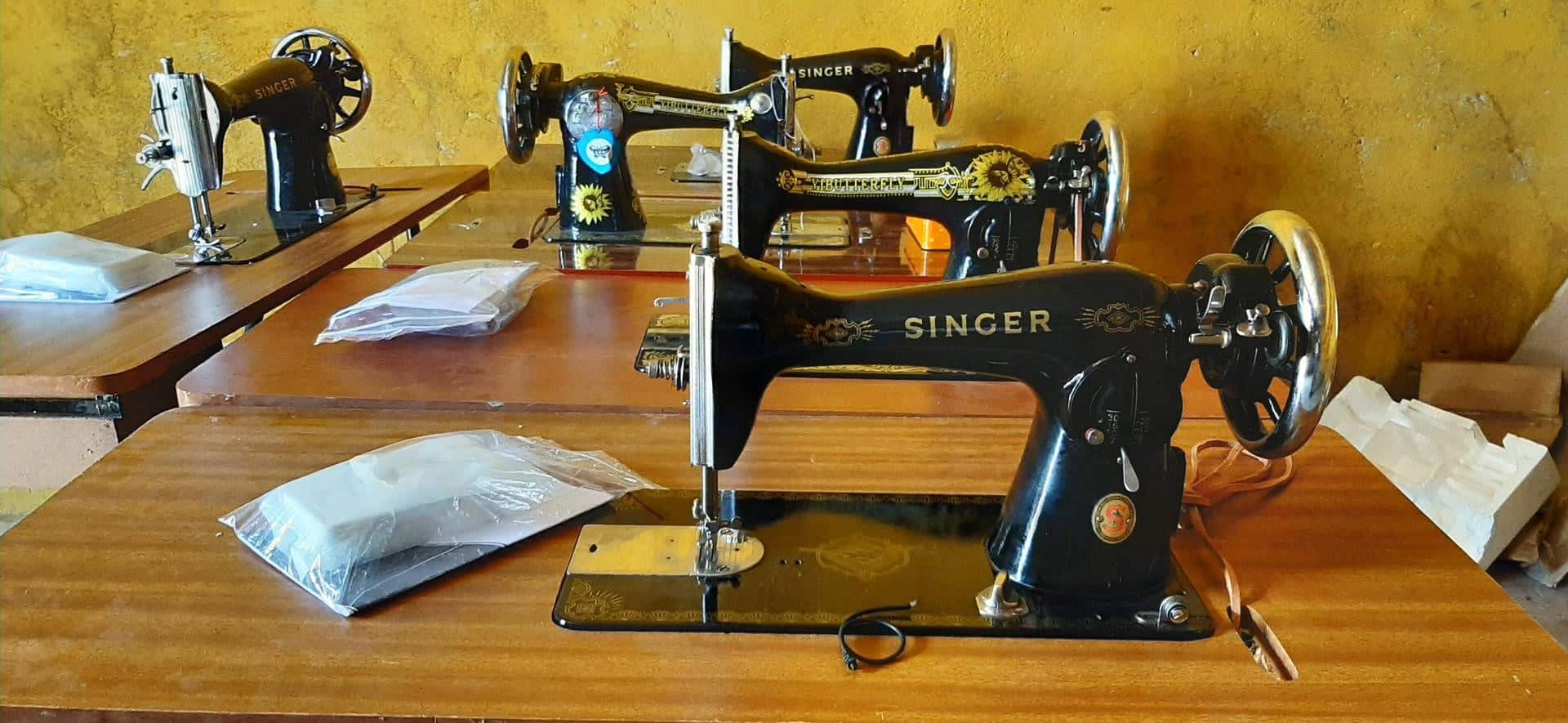
Pictured: Brand new sewing machines for the community
As a community partner, Cobmex has supported PCF over the years. This year, Cobmex has donated 7 brand new sewing machines that women from the collective have selected for themselves! As the first sewing machines in their community, they needed a sewing machine that could be used at any time of day and during any weather, and one that was easily stored. They selected this Singer sewing machine model, as these do not rely on electricity and thus, can be used by their community at any time.
What does this mean for the community? Until now, they have had no choice but to purchase clothing and products from outside and neighbouring towns. Bringing the supplies and the skills to the community equips the women to sew their clothing, sanitary napkins, tote bags, wallets, accessories, items for tourists, and more. This keeps the money within the community and even creates a new income opportunity. Owning sewing machines guarantees sustainability within their community and allows them to be self-reliant.
“Give a man a fish, and you feed him for a day. Teach a man to fish, and you feed him for a lifetime.”
One important pillar for betterment is access to education. Unfortunately, many girls in the community miss school due to a lack of female sanitary supplies and resources as they are expensive and scarce. Now with sewing machines, they can sew reusable and washable sanitary cotton napkins and will not be held back from attending school for this reason.
As it stands, the families must also buy their children’s clothing. With the skills and tools to sew their clothing, it allows them to put that money towards other important resources.
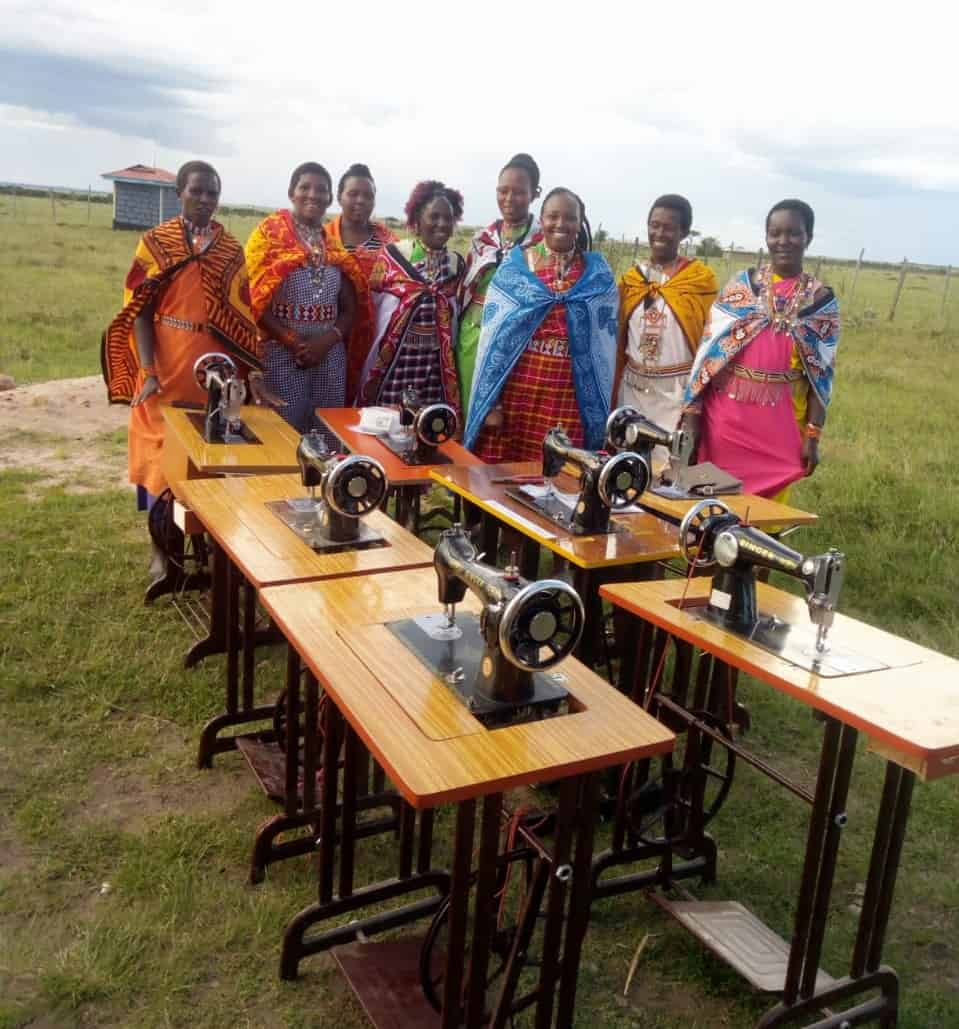
The Journey to Get Here
The journey isn’t finished here. It’s only the beginning. Cobmex donated the sewing machines and will continue to supplement the program by providing the community with additional supplies such as fabric and thread.
Many people came together to make this happen, and the literal journey was taken by Joyce, on a 6-hour road trip to Nairobi to buy the sewing machines and accompany the delivery man back to Maasai Mara. Joyce has been a mobilizer in organizing projects and PCF’s educational workshops.
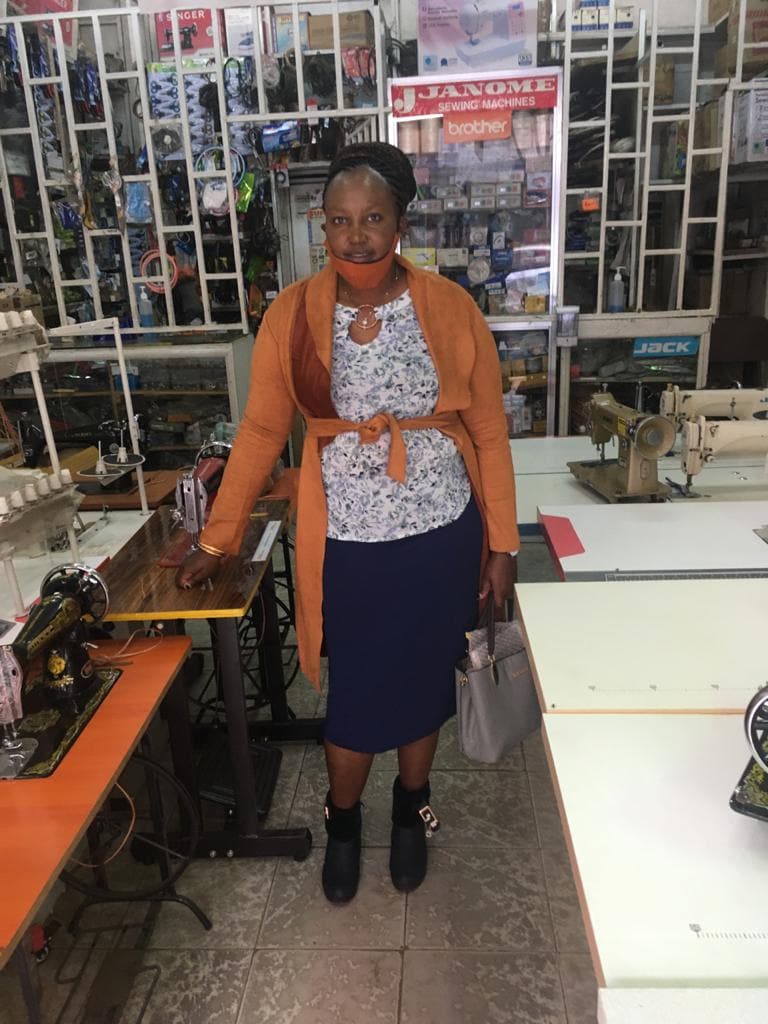
Pictured: Joyce Nashipae receiving the sewing machines in Nairobi
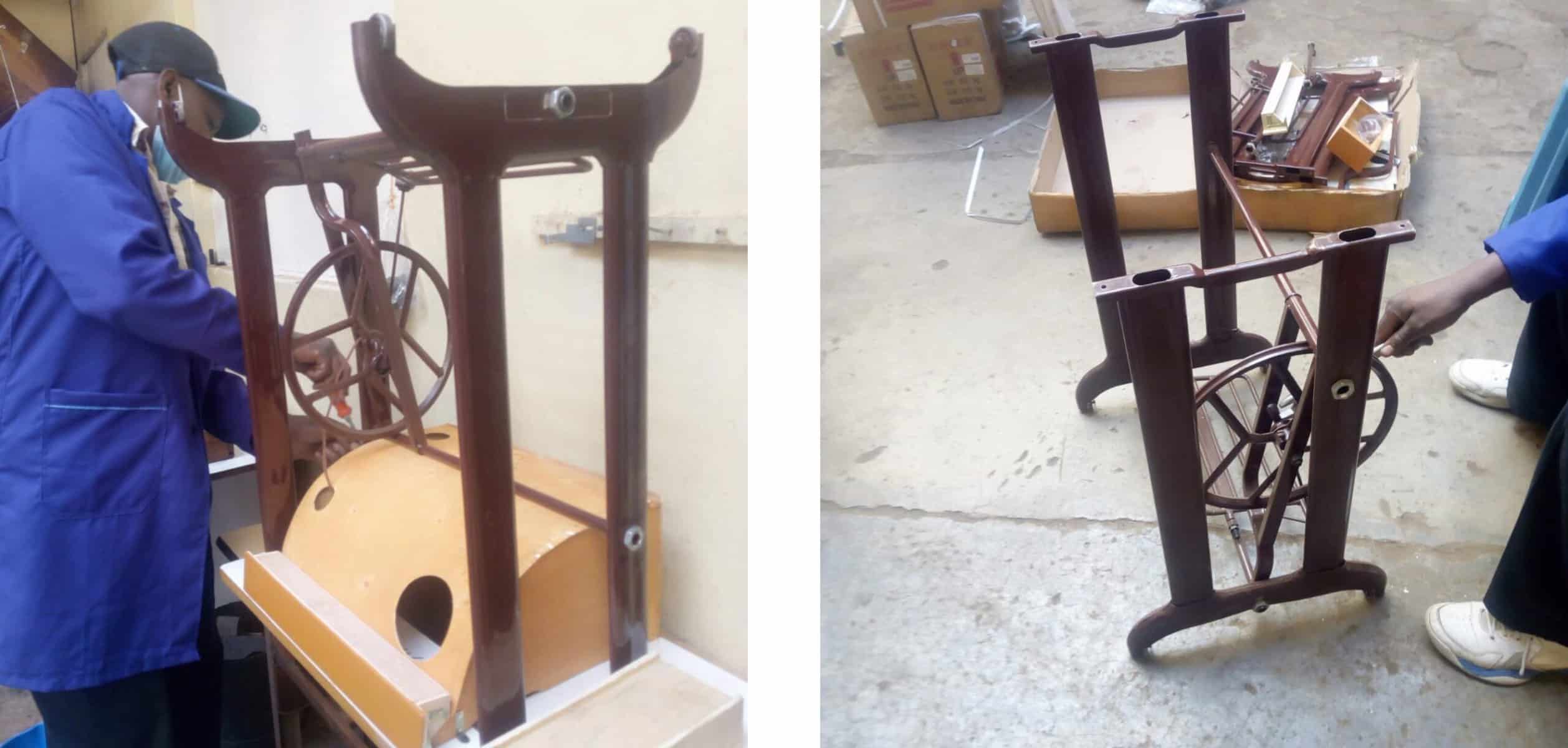
Pictured: Brand new sewing machines for the community
Now that they have the sewing machines, local volunteers have taught them how to sew! PCF continues to run many workshops throughout the year that enlist local teachers and mentors to facilitate them.
The Pastoralist Child Foundation charity was founded in 2013 by Samuel Siriria Leadismo, a pastoralist from Samburu County, Kenya, who shared his vision with Co-Founder Sayydah Garrett, a teacher from New Jersey with a background in the non-profit sector.
The connection between Phil Newman, President of Cobmex, and Sayydah Garrett, Founder, and President of Pastoralist Child Foundation, goes back to their roots in Montreal, Quebec. We want to express our sincerest appreciation to Sayydah for her work and for being an inspiring conduit between PCF and Cobmex.
The Colours of The “Butterfly People”
The community is often recognized for its beautiful designs and colourful clothing. In both tribes, both men and women wear colourful shawls and dresses, and each colour and design have their meaning. “Samburu” means “butterfly” which means that they’re called the “butterfly people,” true to their colours. In Samburu, they wear very colourful clothing designed with different patterns, often made with cotton. In addition to their clothing, their colourful beaded jewelry is very specific to these two tribes. They adorn themselves with colourful beaded necklaces and earrings, and each of them represents a part of their identity. For example, there are different styles of beads and earrings that will tell you if a woman is married or not or if she has a son, etc. Goat herders wear shukas, a big scarf made of wool or cotton that is easy to see far from a distance. Goat herders often go far in the forest, so their choice of clothing ensures that others don’t lose sight of them. Want to learn more?
To learn more, donate, or get involved, visit https://www.pastoralistchildfoundation.org/.

